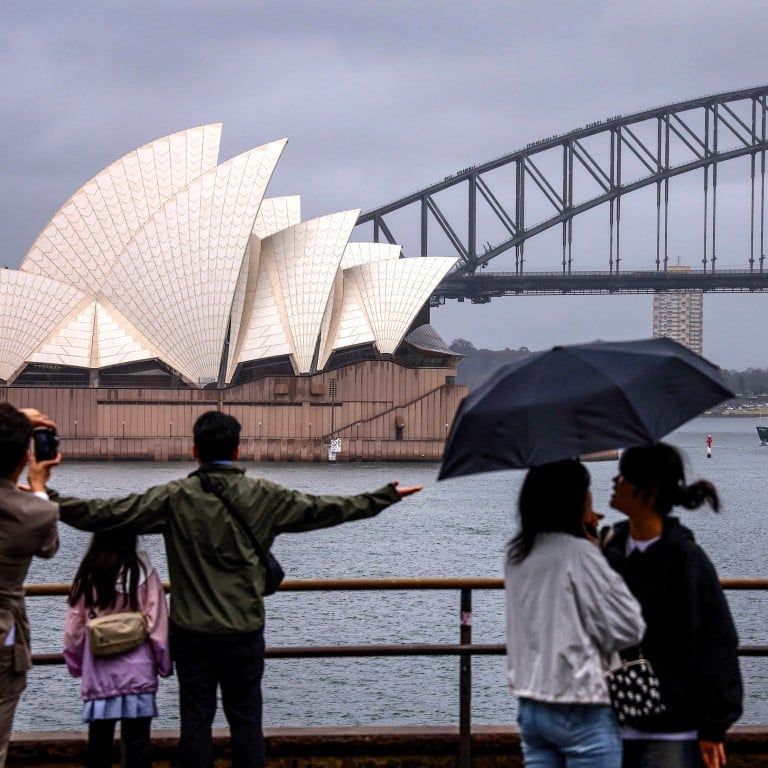
Australia should keep ‘golden visa’ scheme for economic benefits even as finetuning is needed
- Chinese nationals eyeing a move to Australia are set to be disappointed over the pause in the ‘golden visas’ scheme for rich migrants
- Australian authorities should realise these migrants have generated benefits ranging from investments to higher tax revenue
The “pause” on “golden visa” applications by the Australian government this week amid a migration strategy overhaul would have left many eager Chinese migrants disappointed, especially those who have been stuck in a years-long approval backlog.
Wealthy Chinese applicants make up about 85 per cent of applicants.
But the way the pause was announced, or not announced for that matter, was odd. There was no statement from the government except a briefing to journalists, which did not read like the programme was formally axed.
Fund managers, migration agents and lawyers tell me this is the government’s way of testing if they should kill off the programme completely. It is sitting on the fence and no wonder - it wants “working” migrants as well as foreign capital.
Russian hacker Aleksandr Ermakov linked to prominent 2022 Australia data breach
When the government introduced it in 2012, it was just too much of a coincidence that it came at a time when many were leaving the Chinese mainland in droves and looking for overseas investments.
But still it was a win-win. Chinese migrants love Australia – and still do despite the hard years of conflict between Beijing and Canberra from 2020 to 2022, primarily over trade and politics. But over the years, concerns about the programme brewed.
The early years of the visa were contentious when investors stuck their money into the hottest asset in town, property, until house prices blew up. There were glances of suspicion cast at wealthy foreigners buying up mansions in blue ribbon suburbs of Sydney and Melbourne.
A major nip and tuck came along in 2015 when a new rule stipulated that investments were limited to approved sectors such as venture capital, start-ups and managed equity funds.
Still, the Australian Productivity Commission then advised the government to abolish golden visas because the money from these migrants would only benefit fund managers, not generate additional economic activity, and the visas were prone to fraud.
Prominent think tanks like the Grattan Institute also suggested as Australia emerged renewed from the pandemic, it should “unashamedly select permanent skilled migrants for their long-term economic potential” who can contribute more in taxes rather than rich migrants who tend to be older, speak little English, and earn lower incomes.
Pressure mounted as these were happening at the sharp end of the migration debate as protectionism set in post-pandemic and countries were reconsidering their migration policies.
Meanwhile, Ireland has abolished its golden visas while Spain was rethinking the scheme as the European Commission and transparency advocates argued such visas could be a front for corruption, money laundering and terrorist financing.
Those who are asset-rich or are fund managers would disagree.
“I think there is just too much pressure from those with a so-called socialist political ideology to get rid of rich people,” a fund manager, who declined to be named, told This Week in Asia.
Chinese developers pull back in Australia, New Zealand as property boom ends
The fund managers and bankers who earn through the commissions and fees through the scheme said the Productivity Commission and think tanks were too shortsighted. They failed to count the business incomes generated from investments as well as the scores of corporate and capital gains taxes paid.
A report by the Australia China Business Council and Deloitte Access Economics said it was not fair to say these significant investments did not bear economic benefits - these benefits are realised over time, as is the pattern for investments.
It also said visa holders intended to undertake additional investment in Australia once they receive permanent residency and thus create an economic multiplier effect.
Both sides had merit but there is a fly in the ointment. For years, fund managers themselves were known to have devised ways within the scheme and recycled some of the funds invested for more fees through “lending” the same money out to the same investors.
Australia’s ‘selective outrage’ over immigrants overshadowing real issues
So far, the golden visa scheme has raised nearly A$12 billion since its inception.
Consider this, A$1 billion a year is not something a foreign investment-dependent country should scoff at. There is a clear need to tighten up the scheme, particularly to address money laundering concerns.
But then again, Australia should lift its whole game around this. Australia’s anti-money-laundering laws have been criticised globally as weak, and dirty money sloshing around does not stop and end at golden visas.
So keep the programme and sharpen the scrutiny of the money and managers. Authorities should assess wealthy people as equally as they should for “skilled migrants”.


